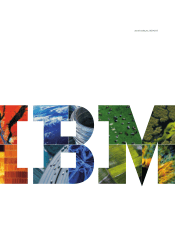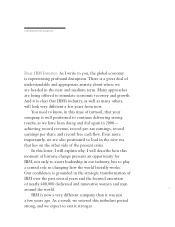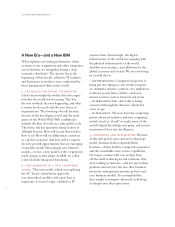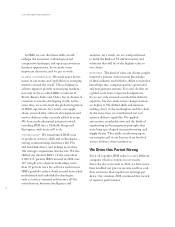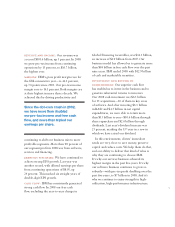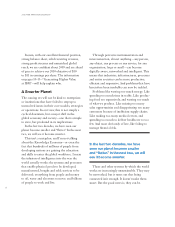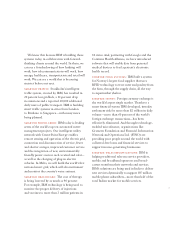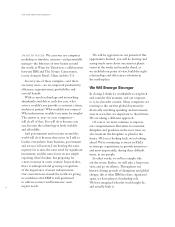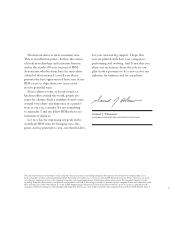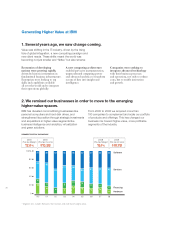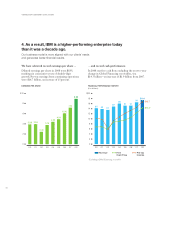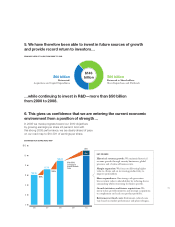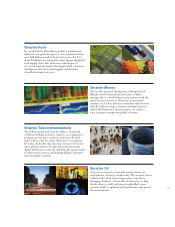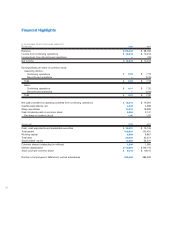IBM 2008 Annual Report Download - page 8
Download and view the complete annual report
Please find page 8 of the 2008 IBM annual report below. You can navigate through the pages in the report by either clicking on the pages listed below, or by using the keyword search tool below to find specific information within the annual report.
In sum, with our excellent nancial position,
strong balance sheet, solid recurring revenue,
strong prot streams and unmatched global
reach, we are condent about 2009 and are ahead
of pace to achieve our 2010 objective of $10
to $11 in earnings per share. The information
on pages 10
–
15
—
“Generating Higher Value
at IBM”
—
will help explain why.
A Smarter Planet
The coming era will not be kind to enterprises
or institutions that have failed to step up to
unresolved issues in their core models, strategies
or operations. In our view, this is not simply a
cyclical downturn, but a major shift in the
global economy and society
—
one that is simple
to state, but profound in its implications.
In the last two decades, we have seen our
planet become smaller and “atter.” In the next
two, we will see it become smarter.
This isn’t a metaphor, and I’m not talking
about the Knowledge Economy
—
or even the
fact that hundreds of millions of people from
developing nations are gaining the education
and skills to enter the global workforce. I mean
the infusion of intelligence into the way the
world actually works: the systems and processes
that enable physical goods to be developed,
manufactured, bought and sold; services to be
delivered; everything from people and money
to oil, water and electrons to move; and billions
of people to work and live.
Through pervasive instrumentation and
interconnection, almost anything
—
any person,
any object, any process or any service, for any
organization, large or small
—
can become
digitally aware, networked and intelligent. This
means that industries, infrastructures, processes
and entire societies can be more productive,
efcient and responsive. And problems that have
heretofore been insoluble can now be tackled.
Problems like wasting too much energy. Like
spending too much time in trafc. Like produc-
ing food too expensively, and wasting too much
of what we produce. Like missing too many
sales opportunities and disappointing too many
customers because of inefcient supply chains.
Like making too many medical errors, and
spending too much to deliver healthcare to too
few. And most obviously of late, like failing to
manage nancial risk.
These and other systems by which the world
works are increasingly unsustainable. They may
be networked, but it turns out that being
connected isn’t enough. It doesn’t make them
smart. But the good news is, they can be.
A LETTER FROM THE CHAIRMAN
In the last two decades, we have
seen our planet become smaller
and “flatter.” In the next two, we will
see it become smarter.

